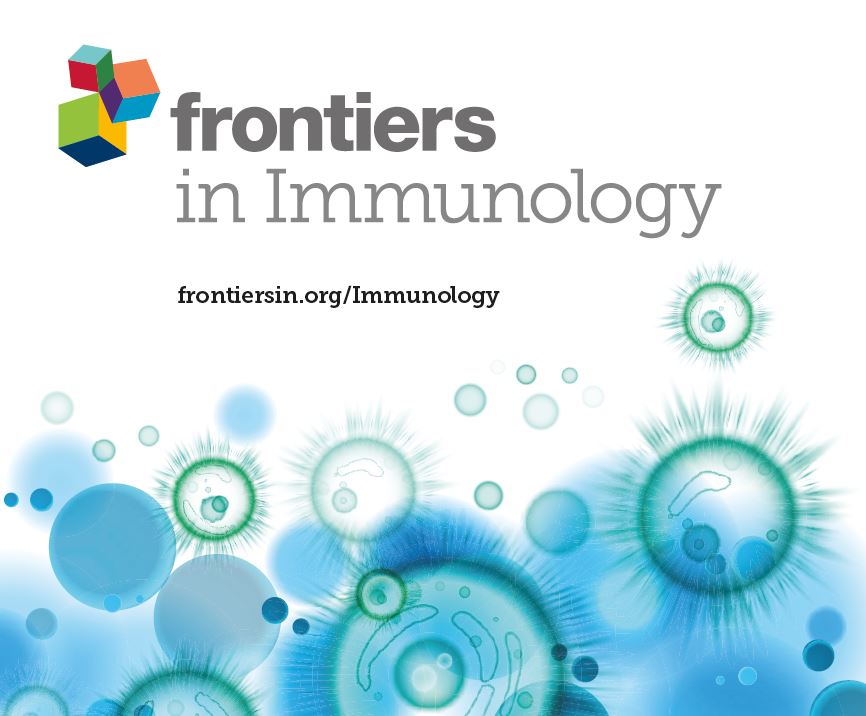揭示 ADAMs 在肝细胞癌临床异质性和免疫微环境中的作用:单细胞、空间转录组学和大容量 RNA 测序的启示
IF 5.9
2区 医学
Q1 IMMUNOLOGY
引用次数: 0
摘要
背景肝细胞癌(HCC)是一种常见的异质性肿瘤,治疗方案有限,预后不良。本研究采用了一种新型的多组学整合策略来研究 ADAM 家族信号在 HCC 中的潜在作用。研究采用了一系列单细胞和空间组学算法来揭示HCC中ADAM家族基因的分子特征。我们利用 GSVA 软件包计算 ADAM 家族信号的得分,然后通过无监督聚类将 ADAM 信号水平分为高、中、低三类。此外,我们还采用了 99 种主流机器学习算法,结合 ADAM 家族基因的共表达特征谱,开发并严格验证了一种创新且稳健的临床预后评估模型。为了验证我们的研究结果,我们进行了 PCR 和 IHC 实验,以确认 ADAM 家族基因的差异表达模式。单细胞测序和空间转录组学分析都揭示了 ADAM 基因家族的分子异质性,进一步强调了其对 HCC 发病和进展的重要影响。在 HCC 组织中,ADAM9、ADAM10、ADAM15 和 ADAM17 的表达水平明显升高。ADAM家族信号得分的升高与不良临床结果、免疫微环境的破坏和代谢重编程有关。这项研究首次报道了 ADAM 家族信号在 HCC 肿瘤微环境中的有害影响和预后意义。本文章由计算机程序翻译,如有差异,请以英文原文为准。
Unraveling the role of ADAMs in clinical heterogeneity and the immune microenvironment of hepatocellular carcinoma: insights from single-cell, spatial transcriptomics, and bulk RNA sequencing
BackgroundHepatocellular carcinoma (HCC) is a prevalent and heterogeneous tumor with limited treatment options and unfavorable prognosis. The crucial role of a disintegrin and metalloprotease (ADAM) gene family in the tumor microenvironment of HCC remains unclear.MethodsThis study employed a novel multi-omics integration strategy to investigate the potential roles of ADAM family signals in HCC. A series of single-cell and spatial omics algorithms were utilized to uncover the molecular characteristics of ADAM family genes within HCC. The GSVA package was utilized to compute the scores for ADAM family signals, subsequently stratified into three categories: high, medium, and low ADAM signal levels through unsupervised clustering. Furthermore, we developed and rigorously validated an innovative and robust clinical prognosis assessment model by employing 99 mainstream machine learning algorithms in conjunction with co-expression feature spectra of ADAM family genes. To validate our findings, we conducted PCR and IHC experiments to confirm differential expression patterns within the ADAM family genes.ResultsGene signals from the ADAM family were notably abundant in endothelial cells, liver cells, and monocyte macrophages. Single-cell sequencing and spatial transcriptomics analyses have both revealed the molecular heterogeneity of the ADAM gene family, further emphasizing its significant impact on the development and progression of HCC. In HCC tissues, the expression levels of ADAM9, ADAM10, ADAM15, and ADAM17 were markedly elevated. Elevated ADAM family signal scores were linked to adverse clinical outcomes and disruptions in the immune microenvironment and metabolic reprogramming. An ADAM prognosis signal, developed through the utilization of 99 machine learning algorithms, could accurately forecast the survival duration of HCC, achieving an AUC value of approximately 0.9.ConclusionsThis study represented the inaugural report on the deleterious impact and prognostic significance of ADAM family signals within the tumor microenvironment of HCC.
求助全文
通过发布文献求助,成功后即可免费获取论文全文。
去求助
来源期刊

Frontiers in Immunology
IMMUNOLOGY-
CiteScore
9.80
自引率
11.00%
发文量
7153
审稿时长
14 weeks
期刊介绍:
Frontiers in Immunology is a leading journal in its field, publishing rigorously peer-reviewed research across basic, translational and clinical immunology. This multidisciplinary open-access journal is at the forefront of disseminating and communicating scientific knowledge and impactful discoveries to researchers, academics, clinicians and the public worldwide.
Frontiers in Immunology is the official Journal of the International Union of Immunological Societies (IUIS). Encompassing the entire field of Immunology, this journal welcomes papers that investigate basic mechanisms of immune system development and function, with a particular emphasis given to the description of the clinical and immunological phenotype of human immune disorders, and on the definition of their molecular basis.
 求助内容:
求助内容: 应助结果提醒方式:
应助结果提醒方式:


